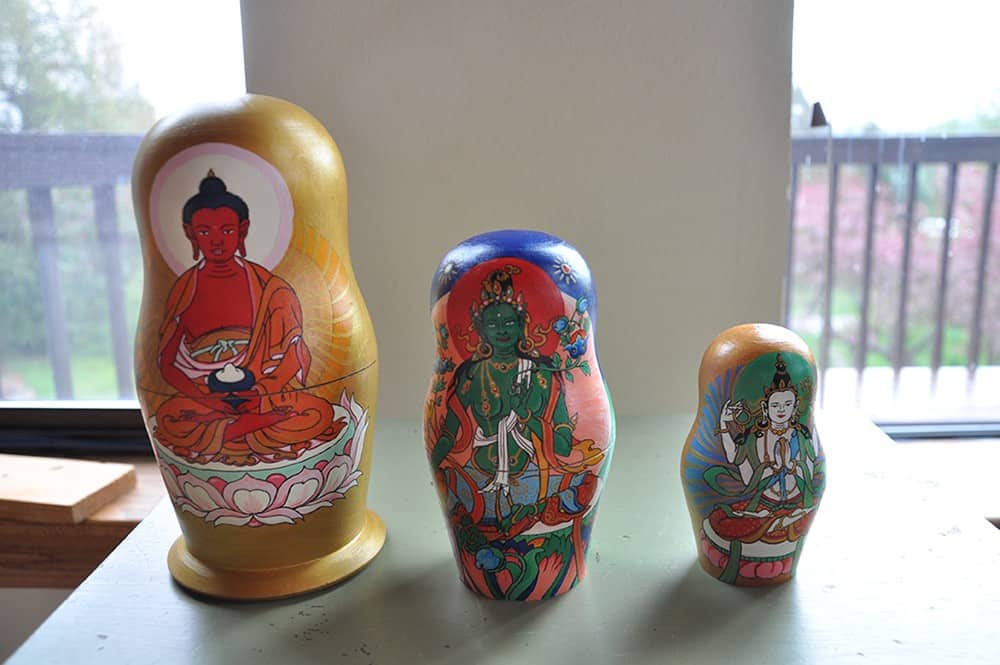The third nonvirtue of speech: Harsh speech (part 1)
The fifth of a series of teachings on the four nonvirtues of speech recorded at the Luminary Temple in Taiwan.
The third nonvirtue that the Buddha advised us to pay attention to is harsh speech. This is speech that hurts somebody else’s feelings. It’s different from divisive speech because with divisive speech I’m upset with this person so I talk to another person. With harsh speech I’m upset with this person so I say something mean to them directly. Harsh speech includes insulting, belittling, criticizing, ridiculing, teasing, making fun of, all these kind of ways that we do to disparage and humiliate somebody else.
It often comes from anger, or it often comes from jealousy. It may come from other emotions too, but I think anger and jealousy are probably the chief ones. Anger is pent up and we explode. We think, “This person did something wrong and they need to know it! So for the benefit of all sentient beings, with compassion, I’m going to tell them how to improve themselves!” And then we go, “You did this, and you did that, blah blah blah blah!” Then we blame them, and disparage them, and swear at them, and call them names. And then at the end we think, “Oh, I feel so much better, I got that off my chest.” But the other person? They often feel rotten, they feel really hurt, or they’re angry and in return, they respond with anger and so we just started a nice little argument. I blew up at them, and then they blew up back at me, and I– back and forth and back and forth. And this happens so often again in work situations and in families. It’s really quite tragic when we blow up and our temper just takes control of the situation.
Now some people don’t blow up because they’re afraid of their own anger, or often as women we’re told, “You don’t have any right to be angry, you’re supposed to be nice.” So what we do instead is we completely back away from the situation. I’m angry, what do I do, I turn around, I leave, my behavior is ice cold. I turn around, I go back to my room, and I pout, and I fume and I feel sorry for myself. But that’s a form of communication too. So we may not communicate with our speech but it could also be in many cases considered harsh speech. Because what we’re really saying, “You’re not worthy of me speaking to you because I’m so hurt and angry.”
Very often these kinds of arguments start with some small thing. Because especially in relationships where we know somebody very well, we don’t always disagree with them because it’s too exhausting to always disagree. We supposedly we let things go, but we don’t always let them go, we keep them in the back of our mind, so that the next time we have a big fight I can bring them out. So I can say, “We’re fighting about this, but last week you did this, and the week before you did that, and the week before you did that,” and I’ve kept a whole nice neat list of all these things to use as ammunition the next time we have a fight. We do like this. It’s really rather foolish.
Some people have such a temper that they just explode over some small thing. And then they just say to the people around them, “Well, I’m an angry person. And you just that’s just the way I am. There’s nothing I can do, you have to just live with me.” And that’s not fair, because we are not inherently angry. Anger is not embedded in the nature of our mind. We can change. And it’s not fair to just say, “I have the right to explode because I have anger, and so you, my family, the people who I care about the most, you just have to put up with my bad moods.” It’s not fair to everybody else. And it creates a lot of negativity in terms of negative karma, and a lot of ill will between people.
Venerable Thubten Chodron
Venerable Chodron emphasizes the practical application of Buddha’s teachings in our daily lives and is especially skilled at explaining them in ways easily understood and practiced by Westerners. She is well known for her warm, humorous, and lucid teachings. She was ordained as a Buddhist nun in 1977 by Kyabje Ling Rinpoche in Dharamsala, India, and in 1986 she received bhikshuni (full) ordination in Taiwan. Read her full bio.

